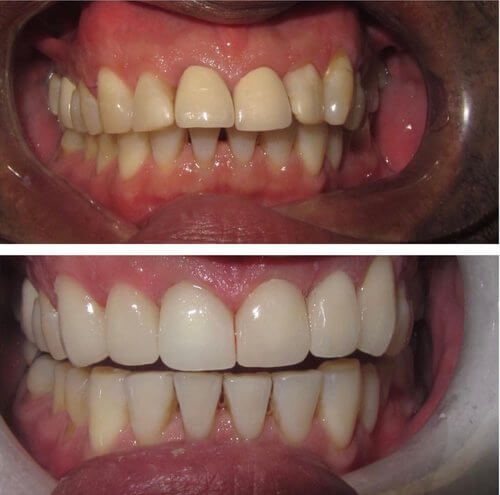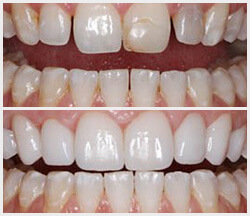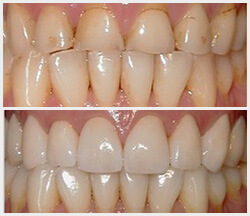Safe and Effective Apicoectomies
An apicoectomy is a minimally invasive dental surgery that removes the tip of a tooth’s root, allowing your endodontist to clean and seal the root canal. This procedure is recommended when a traditional root canal treatment has failed to heal the tooth or abscess at the tip of the tooth’s root.
Learn more with the best dentists in Staten Island.
What Is an Apicoectomy?
An apicoectomy is a surgical procedure performed to treat a tooth that has previously undergone a root canal treatment but failed to heal. It’s also known as a root-end resection or root-end surgery.
During root canal treatment, the dentist removes the infected or damaged pulp from the tooth’s canal, cleans it, and fills it with a material to prevent further infection. Sometimes the tooth doesn’t heal properly, and infection persists. In such cases, an apicoectomy may be recommended to remove the infection and prevent it from spreading further.
Benefits of Apicoectomy
There are several benefits to having an apicoectomy performed, including:
- Saving the Natural Tooth: An apicoectomy allows you to keep your natural tooth, which is always the best option for your overall oral health.
- Minimally Invasive: Unlike traditional surgery, an apicoectomy is a minimally invasive procedure that requires only a small incision in the gum tissue.
- High Success Rate: With proper care and maintenance, an apicoectomy has a high success rate of over 90 percent.
- Short Recovery Time: The recovery process for an apicoectomy is usually quick and easy, with most patients able to return to normal activities within a few days of the procedure.
Candidacy for Apicoectomy
Your endodontist will evaluate your case and determine if an apicoectomy is best for you. Here are some factors that may make you a good candidate for an apicoectomy:
- Failed Root Canal Treatment: If you’ve already undergone a root canal treatment, but the tooth has failed to heal, an apicoectomy may be necessary to save the tooth.
- Infection or Abscess: If there’s an infection or abscess at the tip of the tooth’s root, an apicoectomy can remove the infected tissue and prevent further damage.
- Narrow or Curved Canals: If the canals in your tooth are narrow or curved, it may be difficult for your endodontist to clean them properly during a traditional root canal treatment. In these cases, an apicoectomy may be necessary to remove any remaining infected tissue.
- Proximity to Important Structures: If the affected tooth is near nerves or sinuses, an apicoectomy may be the best option to avoid damaging these structures during the procedure.
The Apicoectomy Process
An apicoectomy is usually performed with a local anesthetic, which numbs the area around the affected tooth. Dental sedation can also help the patient relax during the procedure.
The procedure typically takes about 30 to 90 minutes to complete, depending on the case’s complexity. Here’s what you can expect during the procedure:
- Your endodontist will make a small incision in the gum tissue near the tooth to access the root tip.
- They’ll then use specialized instruments to remove the infected or damaged tissue and clean the root tip.
- Once the root tip is cleaned, your endodontist will fill it with a biocompatible material to prevent further infection.
- The gum tissue will be sutured back in place to promote healing.
After the procedure, you get instructions for post-operative care. Follow these instructions carefully to ensure proper healing and minimize the risk of complications.
Frequently Asked Questions
How long does it take to recover from an apicoectomy?
The recovery process typically takes a few days to a week. This timeline depends on the individual’s health and the complexity of the procedure.
Are apicoectomies painful?
No, apicoectomies aren’t painful. Most patients experience some pain and discomfort after the procedure, but this can be managed with over-the-counter pain relievers or prescription medication.
Does insurance cover apicoectomies?
Most dental insurance plans cover apicoectomy as a necessary procedure to treat a failed root canal treatment. Contact your insurance provider to learn if your plan covers apicoectomies.
Do I need both a root canal treatment and an apicoectomy?
Not necessarily. An apicoectomy is usually recommended as a last resort when other treatment options, including root canal treatment, have failed to heal the tooth properly. Your endodontist will determine if an apicoectomy is necessary in your particular case.
Discover if an Apicoectomy is Ideal For Your Needs
An apicoectomy is a minimally invasive surgery that can treat a tooth that has previously undergone a root canal treatment but has failed to heal properly. It’s usually recommended as a last resort when other treatment options have failed.
If you’re experiencing dental pain or have been told that you need an apicoectomy, don’t hesitate to speak to your endodontist to learn more about the procedure and how it can help you regain your oral health.
Call our Staten Island dental office at (718) 948-5111 for more information today.



Insurance
We accept many insurances. Please contact one of our Insurance Coordinators to discuss your dental coverage plan.
(718) 948 5111
appointments@sidental.com
Open 7 days a week
Reviews
The dentists are absolutely excellent…
“I have been going here for years. The dentists are absolutely excellent and they always have an appointment available that fits into a busy schedule. I also completed invisilgn and my teeth are perfectly straight now. They also practice preventive medicine and just went in for my 6 month cleaning. Every time feel like I have a new set of choppers and best yet the check up noted no cavities!.”
— J.R
Pleasant visit
“As usual, it was a pleasant visit thanks to Dr. Nasso and her great staff..”
— C.M.
Always treated with courtesy and respect.
“Always treated with courtesy and respect. All of my questions were answered regarding upcoming treatments..”
— J.C.
Smile Profile




Put your best face forward.
Create a positive change to your teeth and your smile.
